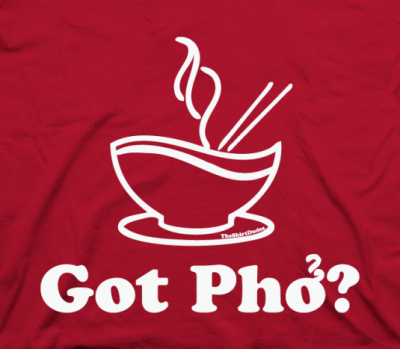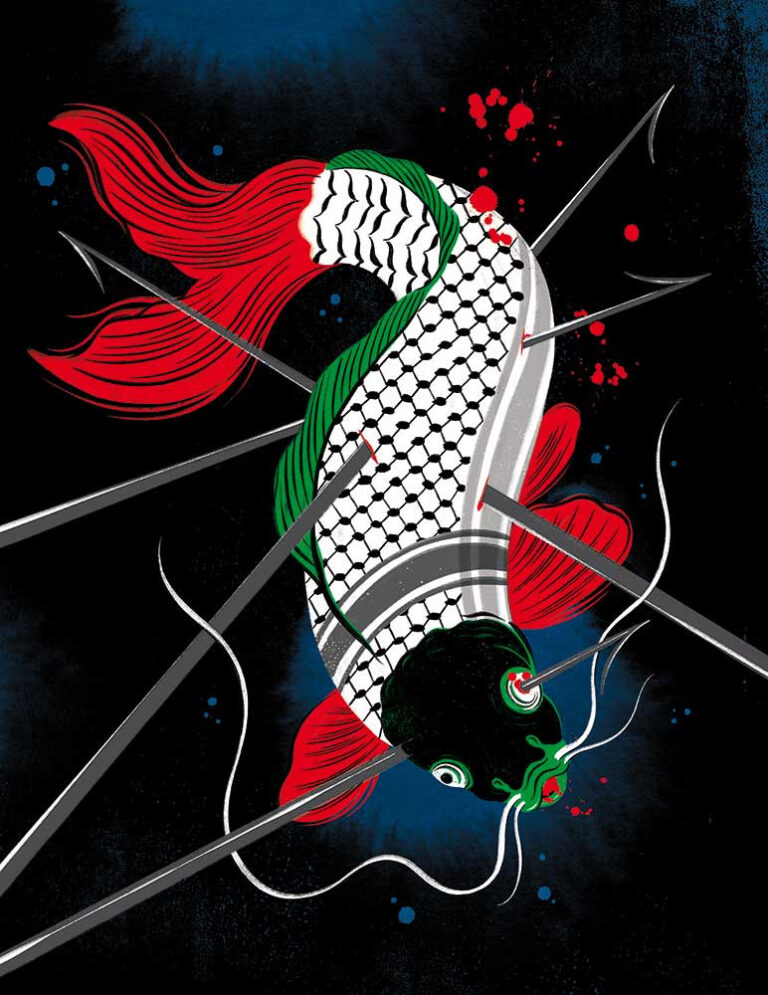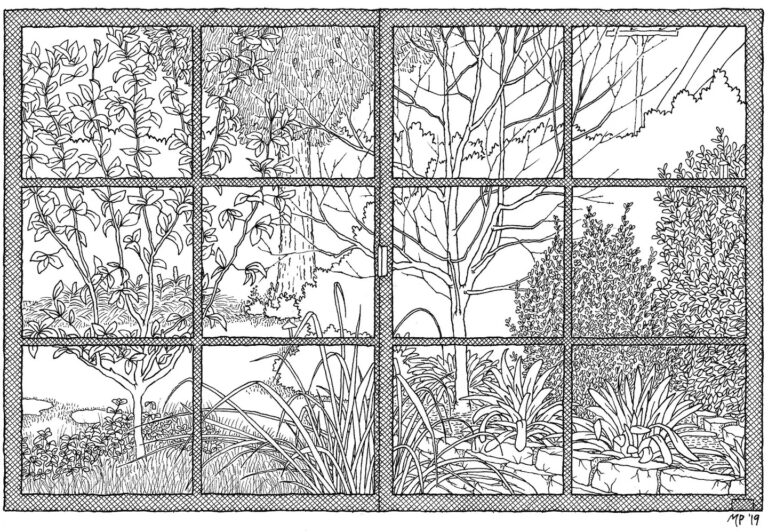Tet passed recently, and Vietnamese holidays always make me think about what it means to be Vietnamese, or not Vietnamese. I’m less interested in the question itself, because there’s no good answer to the question, and more interested in what it implies. The question implies that there is such a thing as Vietnameseness, and that we can define it with a list of things: you’re Vietnamese if you can tell the difference between good pho and bad pho, you’re Vietnamese if you have a favorite brand of fish sauce, you’re Vietnamese if you get teary at the sound of a Khanh Ly song, you’re Vietnamese if you know who Modern Talking is, you’re Vietnamese if…the list can go on. The question of what it means to be Vietnamese is only interesting to me because of the reason why I, or we, or anyone, might ask that question.
I am always getting asked a variation of that question. I went to this Tet party last month, and chatted with a young Vietnamese scholar recently arrived from Viet Nam. We had been speaking for a minute or so, in English, when she said, “You’re not Vietnamese, are you?” This reminded me of the time I had dinner with a group of Vietnamese studies specialists and this young Vietnamese doctoral student, recently from Viet Nam, said to me after a minute of conversation (in English), “There’s not much about you that’s still Vietnamese, is there?” This reminded me of the many times I had been to Viet Nam where people would say (after a few words in Vietnamese from me), “Your Vietnamese is so good!” This means that they thought I was not Vietnamese, since no one would compliment a Vietnamese person on his Vietnamese. I thought, this is what it must be like to be a white person in Viet Nam who breaks out her or his Vietnamese. People treat you so nicely just for being able to say “Please take me to Cho Ben Thanh.”
Whenever this happened, which was at least once a week, it would always remind me of those days in San Jose when I was a kid, in the 1980s, when my parents forced me to attend Vietnamese Catholic Sunday school. I barely spoke any Vietnamese back then, and in that time, in that place, you could not be Vietnamese if you did not speak Vietnamese. It was in the Vietnamese Catholic church, and in Vietnamese language classes, that I first developed my distaste for authenticity. Perhaps it was the pressure of being outsiders, refugees, newcomers to an American life they felt to be strange and one that they had not truly chosen that drove the Vietnamese I knew to define being Vietnamese narrowly. Their Vietnamese identity and culture was like an asteroid from a foreign planet that had come crashing to the American earth, and they would do everything they could to preserve it. So they had their rituals and festivals and masses and schools, where the prescriptions for being Vietnamese were very clear. If you felt included in that world, it was home.
Home was a comforting place, where people always welcomed you, made sure you had enough to eat, knew how to say your name. Home was also the place where people knew you enough to put you in your place, dislike you, hate you, have enough of you, take out their frustrations and rage on you. My parents lived and worked in the Vietnamese world, and the people they were most afraid of were other Vietnamese people. This was the other side of authenticity, the fact that if you knew what it meant to be really Vietnamese, then you also knew where the soft spots and deep hurt were as well. No one knows how to cut you down like another Vietnamese person, who’ll do it with a smile. No surprise that in the 1980s in San Jose, the crime Vietnamese people spoke most often of was the home invasion, when Vietnamese youth invaded the homes of people who looked just like them. The youth knew what hour of the day to come, who to torture, where to find the gold and cash. Was it my imagination, or was this just a repetition of the war, these kids who did the same things the older generation did in Viet Nam. I remembered how, in the second grade, circa 1979, the Vietnamese kids of my San Jose school had already formed gangs and fought each other over territory in the schoolyard. The Vietnamese people had brought their home with them, and home was a civil war, imposed on us by white people who were happy to watch us fight each other. At least in Viet Nam, we fought white people too. Was it my imagination, or in America, did the Vietnamese go out of their way to make white people feel at home whenever they encountered them.
I was never so glad as I was on the day I finally left home. It would take me two decades before I could come back to San Jose without feeling that I was being suffocated by the closeness of those walls of home. Strange, I felt freer going to Viet Nam than I did to San Jose. Not that Viet Nam doesn’t have its own basket case of problems, but it’s not my basket case. I didn’t go to Viet Nam with any expectation that I would suddenly feel at home, 100% Vietnamese, ready to kiss the soil of the motherland. I expected to feel like a foreigner, and that was what I was. The only problem was that the Vietnamese, once they knew who I was, expected me to feel and behave like a native, except when it came to financial matters, when they expected me to behave like a foreigner.
But this was all a long time ago. Wasn’t it? Nowadays the Vietnamese are redefining authenticity, since anything a Vietnamese person does in Viet Nam must be authentically Vietnamese. The rich Vietnamese are so rich they’re doing whatever rich people are doing everywhere, finding new and creative and absurd ways to spend their money, like the $37 bowl of pho or a Lamborghini on the streets of Saigon, where you can’t drive faster than 30 miles per hour. Come to think of it, you can’t drive anywhere in Viet Nam faster than 30 miles per hour. So if this is alien and foreign behavior in Viet Nam, it’s still Vietnamese behavior. Meanwhile, in the USA, there’s a whole new generation of Vietnamese Americans. Some of them want to do culture shows and preserve Vietnamese culture. Some people need to know what their culture is and find it reassuring to rehearse the motions, or to treat culture as if it is something found in a museum, static and unchanging.
But do contemporary Americans feel the need to prove their American culture by periodically wearing powdered wigs and tricorn hats and owning slaves? We think we have moved beyond all of that as Americans and are perfectly happy to think that James Franco represents American culture to the world today. But I haven’t been to a Vietnamese culture show in ten years and I’m curious to see whether today’s American-born students are still doing fan dances and candle dances dressed in peasant clothes, which is what my generation did, most of whom had never had their bare feet in a rice paddy. When I was growing up in San Jose in the hard eighties, I had no idea what a rice paddy might really be like. My idea of Vietnamese culture was that we were a very smart and resourceful people who knew how to both work for cash under the table while collecting welfare and food stamps. I’d like to see a culture show about that.
Nowadays there are some in the new generation who don’t speak any Vietnamese, who don’t care what white people think, and who may not really care that much about being Vietnamese either. Sometimes I run across them in person or see them do their thing from a distance, like Tila Tequila. She doesn’t proclaim her Vietnamese identity, but she is Vietnamese (of a certain kind) in the way she behaves. I’ve seen many like her in Saigon and San Jose, eager to move on up and look good while they’re doing it. Mostly I assume there are many, many more diverse Vietnamese I will never meet because I wouldn’t have a reason to–they’re not doing anything “Vietnamese.” More power to them. They are Vietnamese and they’re not Vietnamese all at the same time. What they do is Vietnamese and not Vietnamese all at the same time. The ability not to be forced by someone’s question about your authenticity into making an either/or answer–yes, I am Vietnamese, or no, I am not Vietnamese–which is to give in to the whole weight of someone else’s expectations around being “Vietnamese.” So the next time someone asks me if I’m really Vietnamese, I’m going to say “yes and no,” and then I will wait for them to ask me another question.
_____
“On (Not) Being Vietnamese” was originally published on DiaCritics.org on March 11, 2011.



